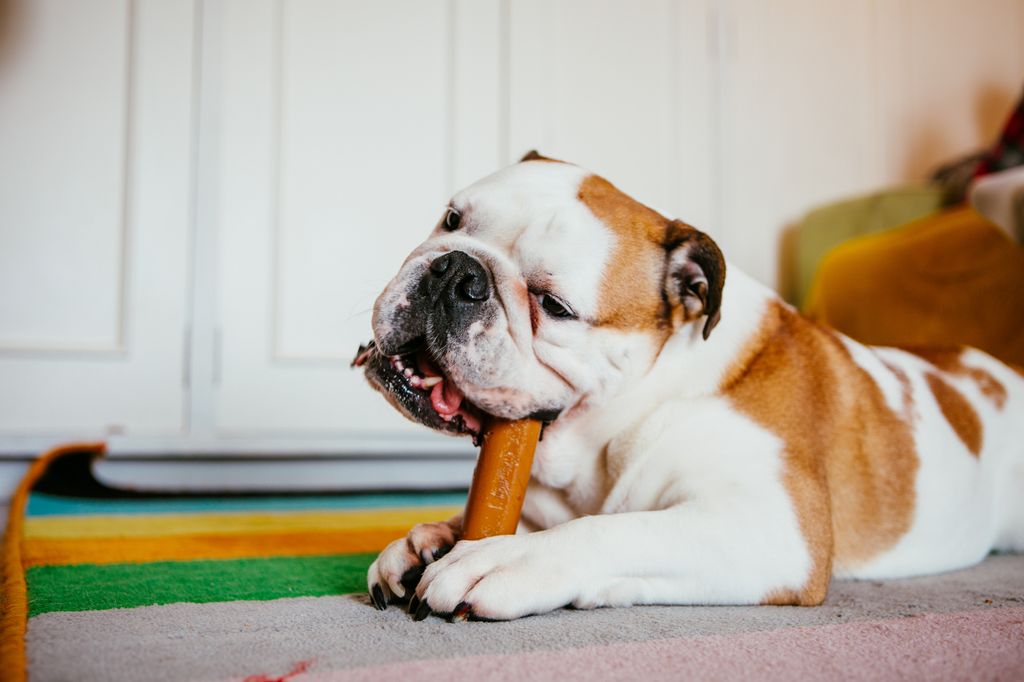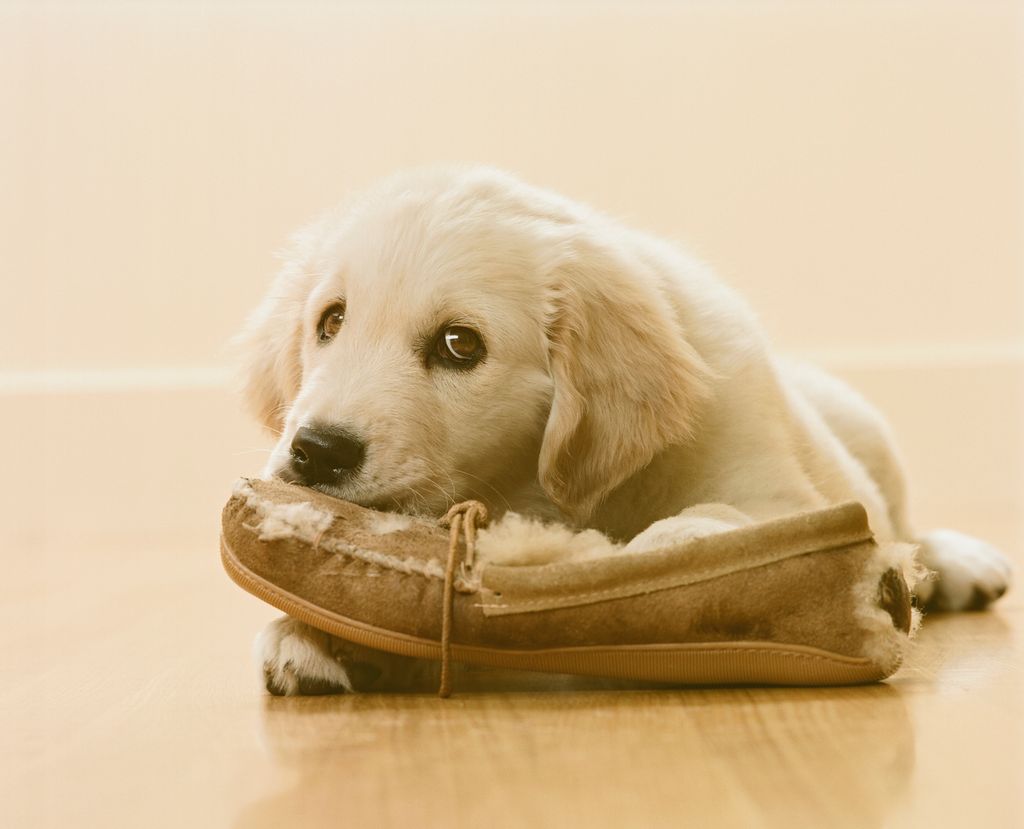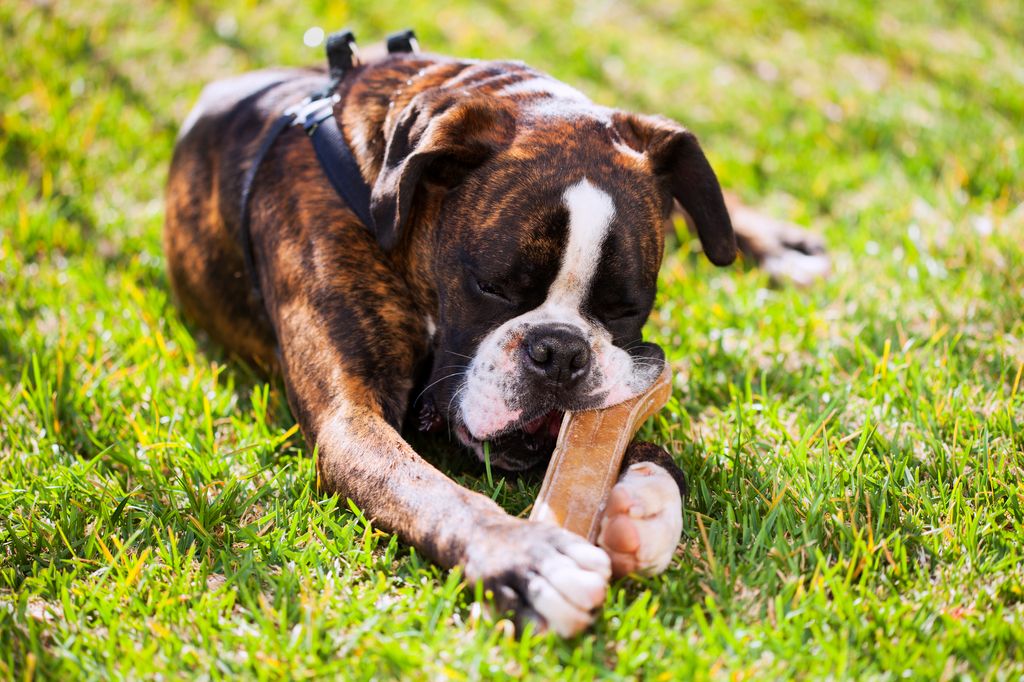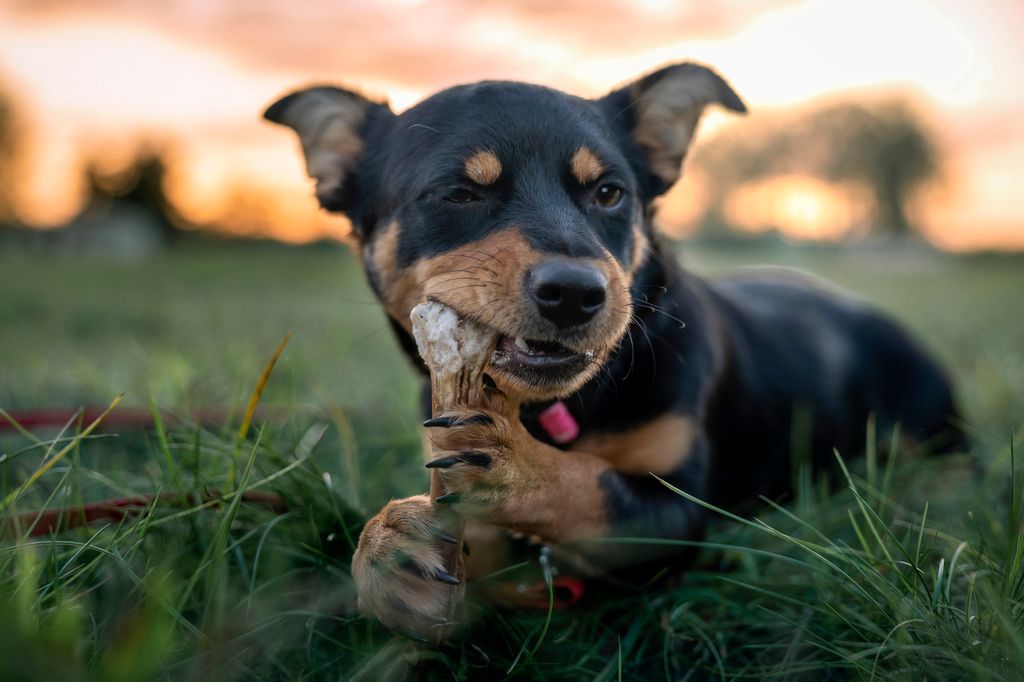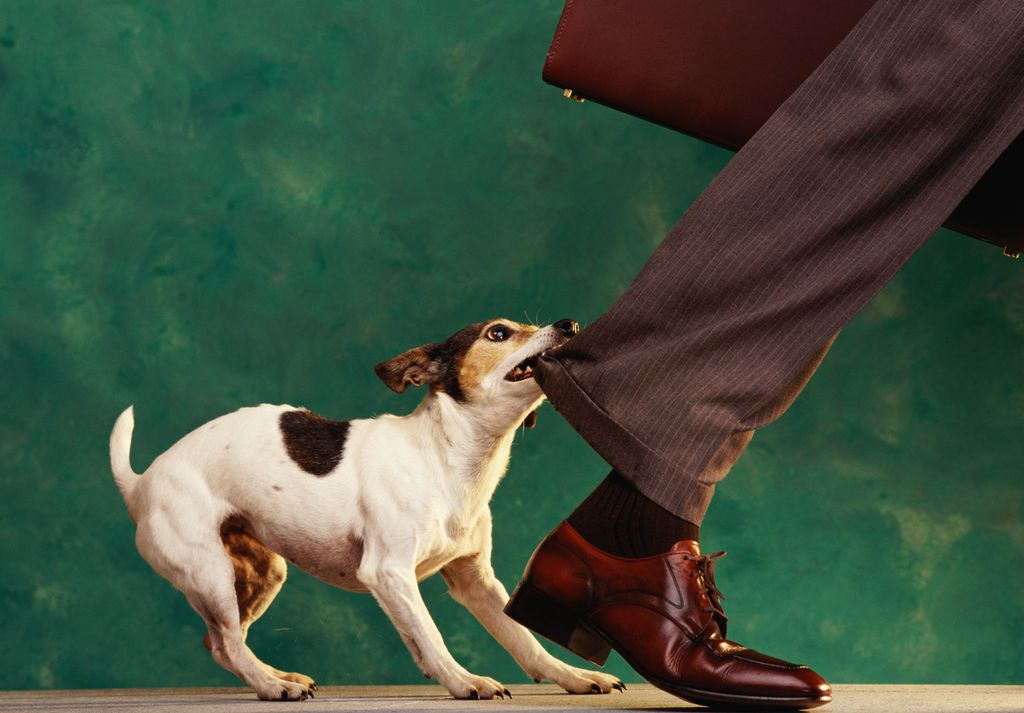
Puppy biting is a deceptively difficult challenge – as much as we love our furry family members, those tiny teeth can hurt a lot more than they appear to.
While it is a challenging behavioural habit, it is one that we can help our dogs break, as long as we take the right approach.
According to Carolyn Menteith, behaviourist and dog trainer at Tails.com, we’re asking the wrong question a lot of the time.
“Instead of asking, ‘How do I stop my dog…?’, the better question is, ‘Why is my dog…?’,” she notes. “Once you understand the reason behind the behaviour, you can start to assess what’s happening or not happening in your dog’s life that is driving it.
“Then, you can work towards providing a more suitable outlet or the emotional support your dog needs to stop resorting to it.”
Why do puppies bite?
Siobhan Harvey, expert dog trainer and founder of The Good Dog Collective, says that there are a number of reasons why our puppies may bite.
She cites overstimulation, learning what different things and materials feel like, they’re teething, or communicating that they’re not comfortable with what you’re doing to them as some of the main reasons.
The puppy expert notes that the behaviour isn’t as worrying as it may seem at first: “It might also surprise you to hear that actually our pups need to bite whilst they’re little ones.”
How should I respond when my puppy bites?
Siobhan points out that the different reasons for biting necessitate different responses; for example, overstimulation might overexcite them, which might mean you should shorten the length of their vigorous play sessions or keep them in a puppy pen when overaroused.
Most importantly, your attitude to resolving the issue should be calm: “This isn’t a punishment, it’s a safe space for them to let their adrenaline levels settle,” she adds, “and crucially they are not able to continue practising biting on you.”
Other immediate responses can be quite simple, according to Darren Beael, the CEO at Years.com.
He says: “If your puppy starts nipping your hand, withdraw it immediately, use a calm, firm cue like ‘no biting’ or ‘leave it’, or, alternatively, let out a high-pitched yelp – this mimics the sound a puppy might make when hurt, and can help your dog understand that biting ends the fun.”
At the crux of it, the most important thing is to “prevent the puppy from prolonged biting on the wrong thing”, notes Siobhan, and to not allow “reinforcement from biting you when they inevitably will.”
How do I stop this behaviour in the long term?
Especially for puppies and adolescents, tidying up is key, according to Carolyn: “Don’t expect them to instinctively know what belongs to them and what doesn’t, or to distinguish between safe and dangerous items. Make sure the whole family supports this tidiness strategy!”
Additionally, she notes that it’s vital to give the puppies an outlet for their natural instincts, especially if they belong to a breed or type that has been bred to use their mouth, whether that’s for retrieving, carrying, pulling or biting.
“Fulfilling the purpose a dog has been selectively bred for over generations satisfies deep-rooted instincts and contributes to their overall wellbeing,” the behaviourist adds.
“Deny them that, and you can fully expect them to go ‘self-employed’. This is another reason why it’s so important to research the breed or type of dog you plan to get.”
When should I seek help?
If the biting persists or becomes more aggressive, you should reach out to a professional, according to Darren: “Early intervention can help prevent long-term issues and ensure your puppy grows into a well-mannered adult dog.”
Siobhan shares the same sentiment, adding: “A trainer is a great source of support to help you raise a happy, well socialised puppy. The week your puppy comes home is really critical as they’re learning to live somewhere new and taking a lot in. Up to 17 weeks is also a very formative period for them, so this stage is important to get into great habits and routines.”
She also notes that a trainer can help with these routines and training exercises, but, more importantly, they can help you to understand your dog’s body language and what they’re trying to communicate.
“They will give you tools to help your puppy be stimulated to burn energy, but not overly stimulated to be over-aroused,” the expert dog trainer adds.
